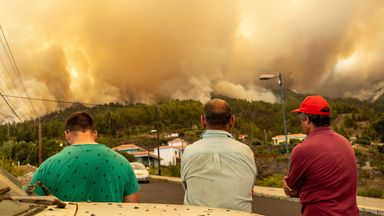While enormous rats might be many people's nightmare, these huge rodents could be a key weapon in the battle against the trading of illegal wildlife goods.
African giant pouched rats can be trained to sniff out trafficked wildlife products, ranging from rhino horns and elephant ivory to pangolin scales and African blackwood, according to a new paper in the journal Frontiers in Conservation Science.
The crafty rodents have especially keen noses, having been previously trained to detect landmines and the bacteria that cause tuberculosis.
"Our study shows that we can train African giant pouched rats to detect illegally trafficked wildlife, even when it has been concealed among other substances," said study co-author Isabelle Szott, a researcher at the Okeanos Foundation.
In the paper, the researchers describe how they trained 8 of a cohort of 11 rats—named Kirsty, Marty, Attenborough, Irwin, Betty, Teddy, Ivory, Ebony, Desmond, Thoreau, and Fossey—how to successfully detect these substances.
"The illegal wildlife trade (IWT) is one of the largest global crime economies, directly threatening species and their habitats, and biodiversity, and indirectly the global climate, and countries' economies," the researchers wrote in the paper.
Through Tanzania-based not-for-profit organization APOPO, the researchers first introduced the rodents to the smell of pangolin scales, which are one of the world's most widely trafficked animals.
The rats were trained to poke their nose into a hole containing a substance, and rewarded when they performed the "nose poke" when a target scent was present.
The rats were then introduced to non-target scents including coffee beans, washing powder, and electric cables, which are often used by traffickers to mask the scent of the illegal goods.
"During the discrimination stage, rats learn to only signal the odors of the wildlife targets, while ignoring non-targets," Szott said.
Even months after being trained on a certain scent, the rats were still able to remember the scent to the same degree as dogs.
"The rats also continued to detect the wildlife targets after not encountering that species for a long period," co-author Kate Webb, an assistant professor at Duke University, said in the statement.
According to the paper, 8 of the 11 rats were able to identify pangolin scales, elephant ivory, rhino horn, and African blackwood among 146 non-target substances.
These rats' ability to successfully sniff out wildlife good amongst an array of other smells means that they could be an extremely valuable asset in the battle against poaching and trafficking.
The World Wildlife Crime Report by the UN Office on Drugs and Crime (UNODC) found earlier this year that "wildlife trafficking overall has not been substantially reduced over two decades," with around 4,000 species being illegally traded between 2015 and 2021.
Of these species, 3,250 are listed in the Convention on International Trade in Endangered Species of Wild Fauna and Flora (CITES).
"Wildlife smuggling is often conducted by individuals engaged in other illegal activities, including human, drug, and arms trafficking. Therefore, deploying rats to combat wildlife trafficking may assist with the global fight against networks that exploit humans and nature," said Webb.
The rats may be more useful for accessing tight spaces and easier and more cost effective to train and house.
"Existing screening tools are expensive and time intensive and there is an urgent need to increase cargo screening. APOPO's rats are cost-efficient scent detection tools. They can easily access tight spaces like cargo in packed shipping containers or be lifted up high to screen the ventilation systems of sealed containers," Szott said.
The study is not entirely representative of the conditions where they would be screening for wildlife goods in real life, however, so they may not be as successful in real life.
The researchers hope to further train the rats to use custom vests when they're sniffing out the illegal goods, with a tiny ball attached that they'd pull to alert their handlers when they detect a target scent.
"The vests are a great example of developing hardware that could be useful across different settings and tasks, including at a shipping port to detect smuggled wildlife," said Webb.
Do you have a tip on a science story that Newsweek should be covering? Do you have a question about trafficking? Let us know via science@newsweek.com.
References
Szott, I. D., Webb, E. K., Mshana, S., Mshigeni, A., Magesa, W. S., Iyungu, A., Saidi, M., Schneider, M., Dore, A., Brebner, K., Cox, C., & Fast, C. D. (2024). Ratting on wildlife crime: Training African giant pouched rats to detect illegally trafficked wildlife. Frontiers in Conservation Science, 5, 1444126. https://doi.org/10.3389/fcosc.2024.1444126
Disclaimer: The copyright of this article belongs to the original author. Reposting this article is solely for the purpose of information dissemination and does not constitute any investment advice. If there is any infringement, please contact us immediately. We will make corrections or deletions as necessary. Thank you.



